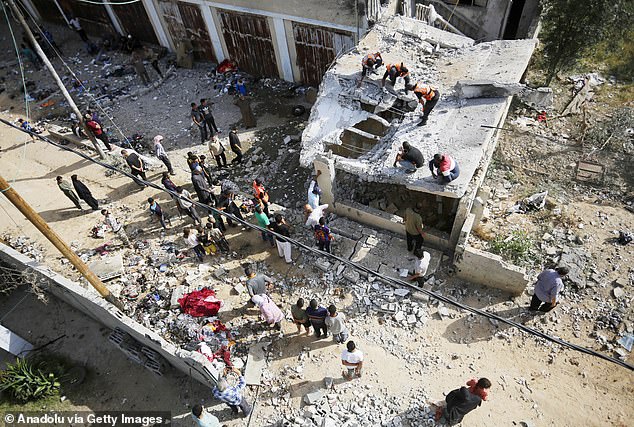Egyptian intelligence scuttled a potential Gaza ceasefire deal this month after quietly changing terms signed by Israel before presenting different proposals to Hamas and adding more demands, “misled” US officials have claimed.
Three sources revealed to cnn On Tuesday, the deal collapsed after top Egyptian intelligence official Ahmed Abdel Khalek made last-minute covert changes to an offer to Hamas without informing the Israelis.
The quiet adjustments meant other mediators, the United States and Qatar, were left in the dark, with one source claiming: “We were all fooled.”
The ceasefire agreement that Hamas announced on May 6 was not what the Qataris or the Americans believed had been presented to Hamas for possible final review, the sources said.
Khalek had offered one set of terms to Israel while presenting another to Hamas, in which Palestinian leaders received more demands, CNN reported.
Egyptian intelligence covertly changed the terms of a ceasefire agreement already signed by Israel before presenting different proposals to Hamas, according to US officials. Pictured: The aftermath of an Israeli airstrike in Gaza, May 22, 2024.
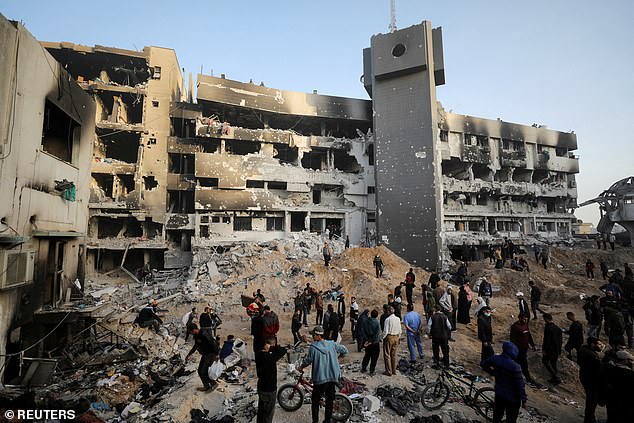
An Egyptian source told the outlet that a day before Hamas made its public announcement on May 6 accepting the proposal, Egypt had received Hamas’ response and transmitted it to Israel.

Israeli soldiers with their tanks gather at an undisclosed location near the border fence with the Gaza Strip, southern Israel, on May 21, 2024.
“All parties assumed that the Egyptians provided the same document” that Israel approved, one of the sources revealed.
Qatari Prime Minister Mohammed bin Abdulrahman bin Jassim Al Thani assured Mossad that Egypt had acted alone in making the changes, two of the sources added.
The details signed by Hamas included the goal of reaching a permanent ceasefire and “sustainable calm” during the second phase of the three-party agreement, according to a Hamas document obtained by the outlet.
Hamas announced that it had agreed to a long-awaited ceasefire on May 6, but Israeli officials responded by stating that they had not approved the proposed framework because it was a “watered down” version of what was originally proposed, which included “far-reaching” conclusions. “. which Israel could not accept.
An Israeli official told Reuters at the time that this was a ruse by the terrorist group hoping to spark a backlash against Israel for not accepting the deal.
The changes made by Egyptian intelligence reportedly sparked anger among Israel, the United States and Qatar against the Egyptians, with one source claiming that the Egyptians “fooled us all.”
An Egyptian source told the outlet that a day before Hamas made its public announcement on May 6 accepting the proposal, Egypt had received Hamas’ response and transmitted it to Israel.
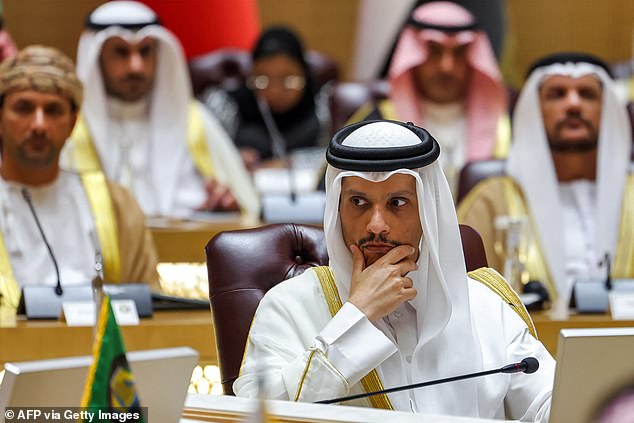
Qatari Prime Minister Mohammed bin Abdulrahman bin Jassim Al Thani assured Mossad that Egypt had acted alone in making the changes.
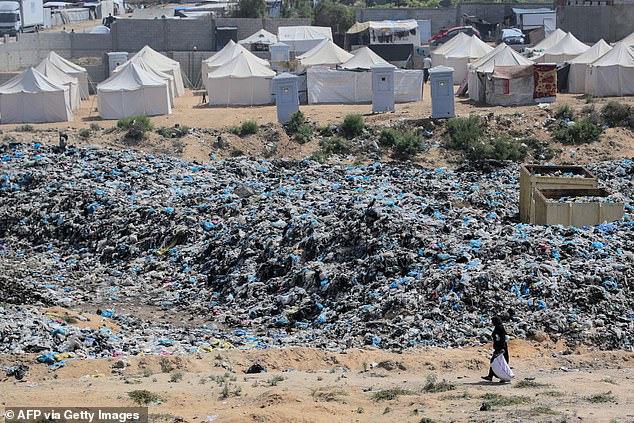
A woman retrieves items from a waste dump that sprawls across a tent displacement camp west of Nuseirat in the Gaza Strip on May 21, 2024.
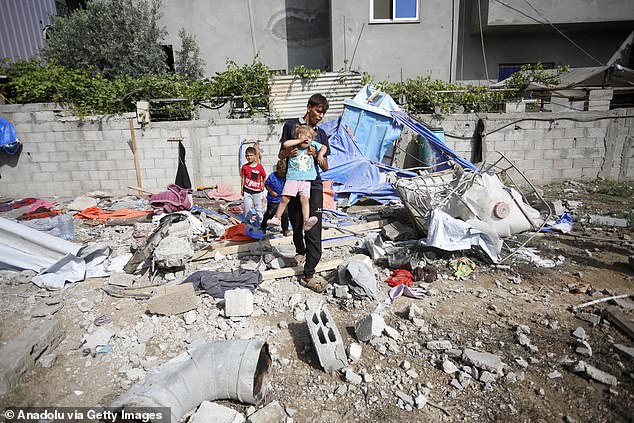
Civil defense teams and civilians conduct search and rescue operations among the destroyed building following the Israeli attack on the Az-Zawayda neighborhood in Deir al-Balah, Gaza, on May 22, 2024.
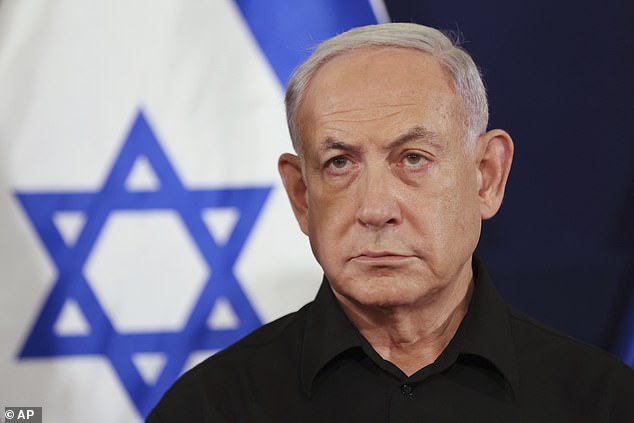
Hamas announced that it had agreed to a long-awaited ceasefire on May 6, but Israeli officials responded by stating that they had not approved the proposed framework because it was a “watered down” version of what was originally proposed, which included “far-reaching” conclusions. “. that Israel could not accept
“Several alternatives and scenarios were proposed to overcome the main point of contention related to the end of the war,” the source said.
“Hamas was telling its people: ‘Tomorrow we will have an agreement,'” the first source said.
But what Hamas responded, Israeli Prime Minister Benjamin Netanyahu said, was “very far from Israel’s fundamental demands.”
CIA Director Bill Burns, who played a role in orchestrating the unaltered version of the hostage deal, was reportedly angry and embarrassed that the deal had been edited without the knowledge of the United States or Israel.
Burns “almost blew up,” the source said, as Khalek had been the director’s counterpart in leading Egypt’s mediation of the ceasefire discussions.
Following outrage over the change of terms under the table and the current deadlock in ceasefire talks, alarm bells are now ringing for those involved as questions arise about Egypt’s motives, even though the country has played an intermediary role. key between Israel and Hamas. for many years.
The changes come less than a month after a group of Egyptian negotiators flew to Israel to iron out some of the final details of a framework that would lead to a temporary cessation of fighting in Gaza and the release of some Israeli hostages and more. Palestinians. prisoners.
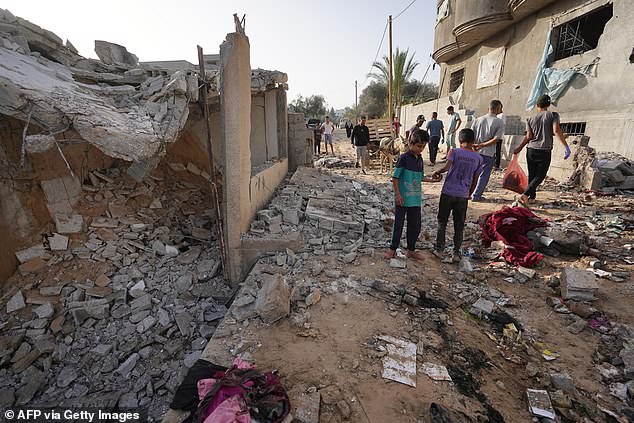
Palestinians inspect damage following Israeli attacks early on May 22, 2024.
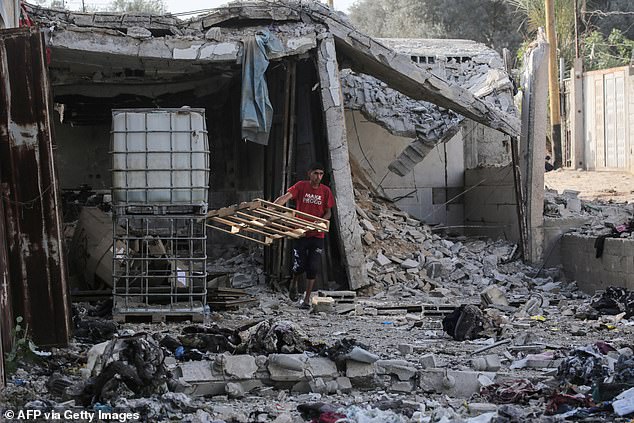
A young Palestinian inspects the damage following the Israeli bombing early on May 22, 2024.
The talks had been ongoing for several months, after the last pause in the conflict that collapsed in December.
Hopes were raised that a peace deal was near, as Israel agreed to go further than it had done before after appearing willing to accept fewer hostages while releasing more Palestinian prisoners and allowing Gazans into the southern part of the enclave return to their homes. north without restrictions.
If talks continue, the Qataris are expected to play a more prominent role, one of the sources revealed, although Egypt would still be expected to be a central figure in the discussions given its relationship with Hamas.
Discussions are still expected to focus on a framework that would see up to 33 Israeli hostages released over at least a six-week period in an initial stage.
Hamas has been calling for the bodies of the dead hostages to also be released and for the two stages to merge without interruption, both demands that Israel has rejected.
Israel’s bombing and ground offensives in Gaza have killed more than 34,700 Palestinians, about two-thirds of them children and women, according to Gaza health officials.
According to the UN, more than 80 percent of the population of 2.3 million has been driven from their homes and hundreds of thousands in the north are on the brink of famine.

